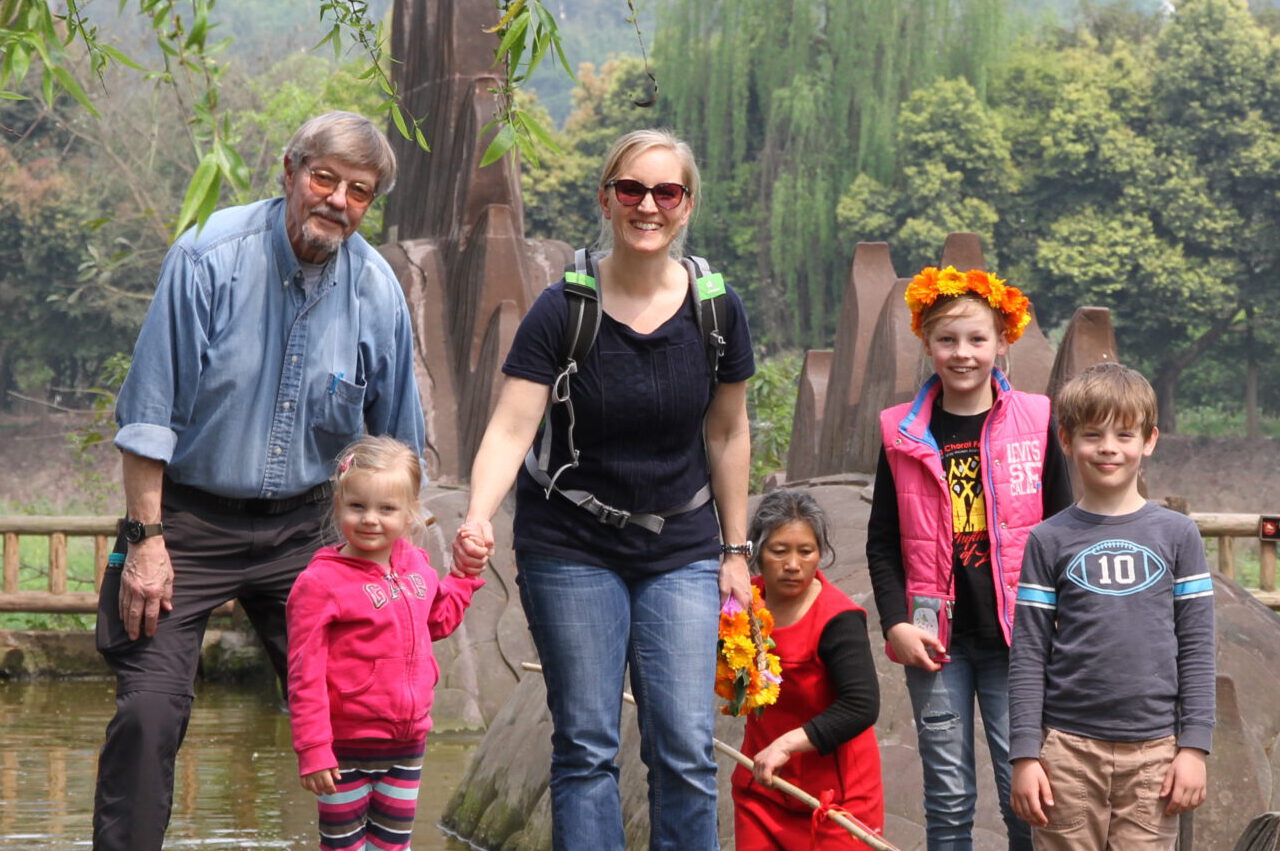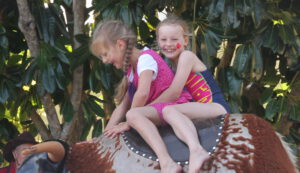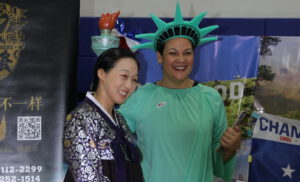This week our oldest turned 13 and I’m taking the opportunity to reflect on some of the things that have shaped who she is right now and why I’m so happy about them.
But before I do that I’d like to direct your attention to the image above. It shows our three TCKs, my Dad – himself a Third Culture Kid and curiosity junkie – and me (Adult Third Culture Kid) on a trip in China. Cool, right? But what I really love about it is the photobombing Chinese Ayi in her colorful dress just going about her business, completely ignoring the silly tourists 🙂 Now, back to the business of raising healthy TCKs.
We are all shaped by many factors and we each experience layer upon layer of influence over the course of our lives: personality, genetics, cultural influences, belief systems, TCK experiences, friends, siblings, parents & grandparents, teachers, languages, interests, the list goes on and on. Let’s focus on just one of these: growing up as a Third Culture Kid (TCKs, see definition in yellow box). We read a lot about parents’ worries about raising their children outside of their passport country, but I’d like to highlight some of the major perks of being a TCK – I certainly wouldn’t trade it for anything.
A traditional Third Culture Kid (TCK) is a person who spends a significant part of his or her first eighteen years of life accompanying parent(s) into a country that is different from at least one parent’s passport country(ies) due to a parent’s choice of work or advanced training.
(Pollock, Van Reken, Pollock, 2017)
Third Culture Kids - building strong bridges
Thirteen years ago we were finishing our first assignment in South Africa and were very excited about the new adventure that had just started: parenting. Four international moves and two more kids later and we’re still not sure what we are doing, but one thing that hasn’t changed is that our first born is always the guinea pig for every new phase we start.
On the up side it means she has the most experience and may reap the greatest benefits from the life we lead. Third Culture Kids can be bridges between cultures and communities, but bridges can collapse. They can be ferries running between two river banks, though never going on land and possibly drifting forever. You can see the challenges we potentially face. On the flip side are the benefits and advantages and I believe they far outweigh the challenges.
There are ever more voices proclaiming TCKs as key to creating solutions to environmental issues, business and politics throughout the world in the future, but there are also frightening statistics showing that large numbers of TCKs develop mental health issues and other problems.
I will address some of these very valid concerns in a future post but birthdays are for celebrating so I chose three highlights and asked my now-teenager how she thought they applied to her.
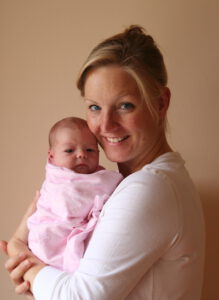

My sincere hope is that as TCKs we’ll do the work to become bridge builders in a world that is aligning more and more with our experience. What a lost opportunity it would be not to make the most of the fact that in many ways we’re a preview of coming attractions!”
Chris O’Shaughnessy, Spotlight Interview, Among Worlds Magazine
Top three advantages of growing up as a TCK
I chose the following three highlights as described in Ulrika Ernvik’s book Third Culture Kids, A Gift to Care For to interview our daughter about:
- Having confidence in travel and starting over.
- Understanding that there can be more than one way to look at the same thing.
- Being used to having diversity in relationships.
This is a child who has attended four different schools and until 2020 flew internationally every year of her life. Pretty standard stuff for a TCK so when I asked her how she’d feel if we put her on a plane to Glasgow tomorrow, her only question was if she could please take her siblings along. No hesitation whatsoever.
When starting something new she knows she can always figure it out but she still prefers to have a parent physically nearby the first time she does it, if possible. There have been many new experiences this past year as we repatriated but she has mastered them all.
A recent Facebook post about what parents serve kids for breakfast sparked a conversation in which I proposed rice as an option to our kids. Her reply “that’s ok for some people but it’s not what I want”. Acceptance of differences, not rejection. No “yuck, that’s not breakfast!”
Adaptability and flexibility play a role too. For example, over the course of her schooling she has been taught three different ways to solve the same mathematics problems. She just absorbs them all and uses the one required by whichever system she is in at the time. I’m curious to see how she will use this knowledge in the future.
Diversity in relationships is easy to see. In just a few months in Germany she had surrounded herself with girls both born and bred here, as well as other TCKs and cross-cultural children. In my experience TCKs seek each other out and she has done just that. As she matures and is exposed to other forms of diversity I am confident that her circle of friends will get even more colorful and will include a wide variety of personalities. I look forward to welcoming them into our home.
These are simple examples that apply to this young adult, but you can see how these skills will be very useful to her in the future as our world opens up to increased diversity and acceptance of differences across cultures and all aspects of life. And TCKs are well positioned to take full advantage of these required skills – because they come so naturally and authentically to them.
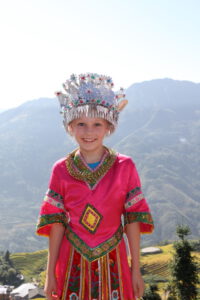
A Mother's View
She may be a TCK but she’s also a pretty normal 13 year old, with all the ups and downs that come with adolescence. Whatever the forces and influences that are shaping our daughter may be, there are four things stand out for me right now:
- I am learning to let go and let her make mistakes. And then to be there when she needs support, without taking the hard learning away from her. There are things we can only learn by doing, by failing and fixing them ourselves.
- I love how independent and responsible she is becoming. I have moments of pure pride and joy observing her get stuff done and standing up for what she thinks is right.
- It is incredibly painful to see her sad and hurt – for example in the first few weeks and months after a move. The challenge is to help our children through the pain, not try to ‘make it all better’ so they stay open to future relationships and aren’t afraid of connecting again.
- I delight in watching her grow every day. To see who she is becoming and who will emerge on the other side of adolescence.

Outlook
Currently we have repatriated and are living a “normal” life but I know all of their past experiences contribute layers of influence to our children’s development. We are doing what we can to continue reaping the benefits of these positive aspects for them:
- When we can, we will travel again. Hopefully, on another assignment someday.
- We will continue to encourage different ways of looking at things through discussions, media, learning and exposure to different viewpoints.
- We will always seek out diversity in its many forms.
So the benefits continue, wherever we are, because we want our children to have wings to soar with confidence into this bright & beautiful world.
Happy Birthday my darling.
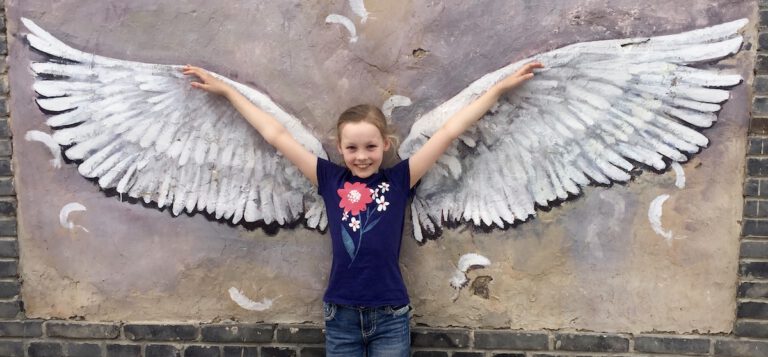
Favorite Chocolate Raspberry Cake
This recipe comes from my friend and fellow Wild Woman Lundy. The first time I had it was at bookclub in Beijing and I was immediately smitten. J’s reaction was even better: it was love at first chewy, chocolatey taste and it’s been her birthday cake every year since.

